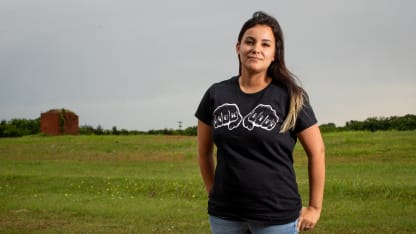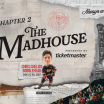"One of the things that is near and dear to my heart is language, and how would we be able to utilize something that is a tool to teach not just a few people, and not just people within our jurisdiction, but everywhere," Thompson said. "And us coming out of the pandemic and getting a lot of requests for virtual and online classes, I thought that an app would be great."
Native languages are endangered at large as a result of deliberate policies and actions to erode culture.
In the late 1800s and early 1900s, religious groups and the government built boarding schools, and mandated young Native American children attendance, as a way to eliminate the traditional Native American way of life. They removed them from their communities and separated them from their families for years, while being stripped of any elements of their culture - their names, their hair and clothing all changed.
In these boarding schools, Native American children were forced to learn and speak only in English, facing harsh punishments if they spoke in their native tongue or practiced their own religious beliefs. Teachers humiliated and made the students feel ashamed of their culture through their lesson plannings to break the foundations that the children were raised on. For the students that were later able to reunite with their families, they felt that they simply did not belong within their culture anymore.
"If children did make it through school age - and if they were able to return home - they might not have been able to find their families again," Thompson said. "They also felt alienated because they were no longer identifying with a Sac and Fox person because they grew up being told that that was sinful or wrong."
Older children and young adults had a hard time trying to find their place within their own communities because they felt like outsiders or simply forgot how to speak their native languages, causing communication barriers. Struggling with their own cultural repression caused a dominion effect within the Native American nations. As the children grew up and started their own families, many only taught their young ones how to speak English.
"All they knew how to speak after boarding school was English," Thompson said. "If they were lucky to have memory of language, then they didn't want to speak it when they had children themselves because they were afraid that their children would be taken away from them and would have to go to boarding school."
Over the course of generations to follow, native languages began to fade. As the elders died, so did the language. For the Sac and Fox Nation, the Sauk language reached a critical point.
Now, with a new way to bring the language back to life, Thompson hopes they will build a new generation proud of their culture and identity.
Tribal members near and far will soon have the ability to download their language app and learn the language their ancestors once spoke. When they enter the app, users will see the faces and hear the voices of fellow tribe members to learn from.
"They actually captured footage of us, so that it's our faces and our people on the app demonstrating," Thompson said. "They also recorded our voices speaking the words. It's not something that's generic. It's unique to us."
Not only will users be able to learn the Sauk language, they will also be able to learn about the history, culture and heritage of the Sac and Fox Nation.
"You're not just learning the language," she added, "you're also seeing our history and our culture."


















